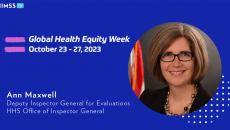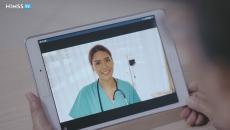Telehealth
Steven Ullman, director at the Center for Health Management and Policy at the University of Miami, says utilization has dropped to 5.4% of medical claims since telehealth use skyrocketed during the pandemic.
Dr. Nele Jessel, chief medical officer of athenahealth, says bringing telehealth and other tools into the primary care setting destigmatizes mental health conditions and increases treatment.
CMS should get more information from Medicare users to help address their health disparities, suggests Ann Maxwell, deputy inspector general for evaluations at the U.S. Department of Health and Human Services Office of Inspector General.
According to Jacqueline de Leeuw, CNIO at Radboud University Medical Centre, the health system has more than 200 "digital nurses" and the motto: "HIMSS 7-up".
The commitment to telehealth from CMS offers medical specialties the freedom to innovate and provide better and more equitable care, says Dr. Robert Murry, chief medical officer of NextGen Healthcare and a practicing family physician.
Dr. Alan Spiro, president and CMO of Laguna Health explained how research done in conjunction with NorthShore University Health System showed that using telehealth to address "life context factors" can improve access and reduce costs.
According to E.U. project Label2Enable's Petra Hoogendoorn, there is demand from both patients and doctors for centrally filtered and recommended healthcare apps.
The use of voice interfaces to follow up with discharged patients at home can extend care and reduce readmissions, said Freddie Feldman, director of voice and conversational interfaces at Wolters Kluwer.
A shortage of skilled nursing is disrupting care delivery nationwide. The workforce challenge is not going away, and will require creative approaches, including virtual care, says Wendy Deibert, chief nursing officer at Caregility.
Discussion of an app for children with ADHD that improves attention and cognition, from Scott Kollins, chief medical officer at Akili Interactive.


























